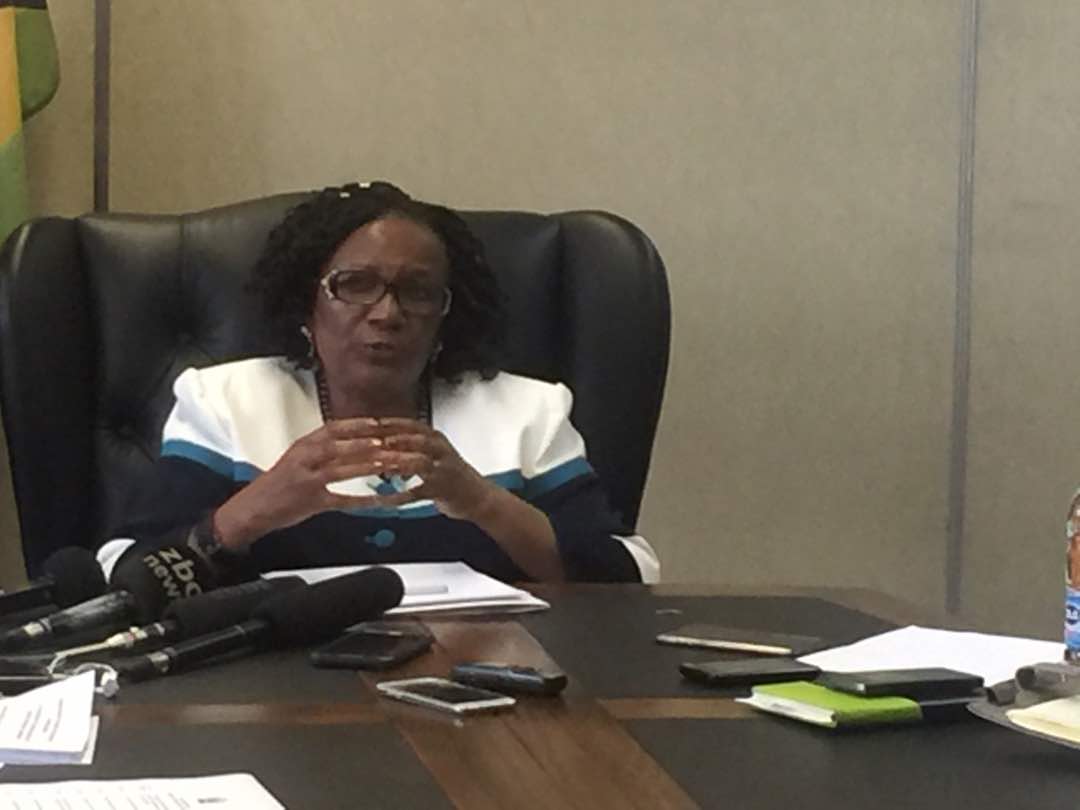By Byron Mutingwende
Priscah Mupfumira, the Minister of Tourism and Hospitality Industry has called for the maximum participation of locals so as to ensure the sustainability of the sector. She made the remarks while updating the media on the policy direction her ministry is taking to promote domestic tourism.
“For a long time Zimbabwe has been focusing on regional and international tourism yet domestic tourism is the foundation for developing sustainable tourism. Most of our tourism products are out of reach to our local people. I am thus proposing a campaign to let our locals know their tourism destinations and products,” Mupfumira said.
She called for incentives for school children, the elderly and the vulnerable for them to be able to experience and appreciate the country’s tourism products and market them to others. In other countries, they have got a 4-tier pricing system. There is a price for international tourists, continental, regional and national (domestic) tourists.
“Sometimes we fail to define tourism properly by focusing on largely known tourism sites like the Victoria Falls, Kariba and the Eastern Highlands. We should revamp publicity on religious, cultural and historical tourism in all the provinces.”
The Minister gave an example of the place of burial of the seven heroes of the liberation war in Chinhoyi and proposed the construction of a shrine at the site so that people would visit it and appreciate the country’s history towards independence. The same could be done to Rekai Tangwena’s homestead.
She added that tourism should not be regarded as a preserve for the elite and lambasted the overcharging of tourism products. A case in point is a situation whereby one tourist may be charged for every visit of the Victoria Falls in the morning and in the evening.
Mupfumira bemoaned the fact that Africans fail to define their own narratives about tourism because most locals would not have sampled tourism products in their respective countries. She called for an improvement of the quality of local tourism products to meet world-class standards.
Domestic tourism is an essential contributor to the growth of the tourism economy. It provides a foundation for sustainable tourism growth and development especially in times of global uncertainties. To date, domestic tourism account for most of tourism worldwide at 83% of global tourism, generating over 4.8 billion tourist arrivals per year according to United Nations World Tourism Organisation (UNWTO). Domestic tourism has thus become a new frontier in growing the gains of tourism in any destination. It offers a fall back plan for any destination’s tourism and also acts as a magnet for international tourism as tourists frequently go were the locals like to go.
“Whilst successful destinations are anchored on domestic tourism, the same cannot be said about Zimbabwe whose main emphasis has been on regional and international tourism. The country’s domestic tourism has been characterized by low participation of locals in leisure tourism, expensive product offering, limited product knowledge and lack of affordable domestic packages.
“Zimbabwe has given limited recognition to the very important contribution of the Domestic Tourism Market to the growth and development of the economy. Whilst we acknowledge that the disposable income of our people is very low, it is disheartening to note that our attractions are out of reach to residents where these attractions are located. The locals should have an opportunity to at least experience tourism products within their vicinity,” Mupfumira added.
The Ministry will be embarking on a Domestic Tourism Campaign within the 100 days Action Plan framework as set out by His Excellency, the President of the Republic of Zimbabwe. The campaign will emphasise on developing a culture of tourism among locals and a better understanding of what the country has to offer.
The Domestic Tourism Campaign seeks to fulfill a number of objectives. These include the creation and intensification of awareness of what the country has to offer to the Domestic Tourism Market; resuscitation of at least ten [10] Visitor Information Centres throughout the country; initiation of affordable rates of tourism products and services to the local market; and the coordination of the development of affordable domestic packages.
Domestic Tourism should be the bedrock of a sustainable tourism industry as it is not affected by the external environment associated with foreign tourist markets. Countries with successful tourism industries have vibrant domestic tourism segment. For example, China’s domestic tourism generated 4.88 billion trips and $681billion in 2017 according to China National Tourism Administration (CNTA)
Coming closer home, South Africa developed the Sho’t left domestic marketing campaign in 2013 to encourage domestic travel. The campaign’s ideals were that there was always a first time to experience something new and that every weekend provided an opportunity to do something that had never been done before. In 2016 domestic tourism generated 43million trips contributing R63billion ($5.14billion) according to StatsSA. Currently domestic tourism contributes 73% of tourism in South Africa.
“The old adage “Charity begins at Home” aptly captures the essence of the Domestic Tourism Campaign. I am aware that a big number of Zimbabweans are taking holidays within the region and abroad. They know a lot of places outside Zimbabwe and not much about their own country. We are not complaining because such exposure brings in new knowledge to the country.
“However, tourism like charity should begin at home. We are strongly encouraging our people to take holidays at home first before considering other destinations.”






